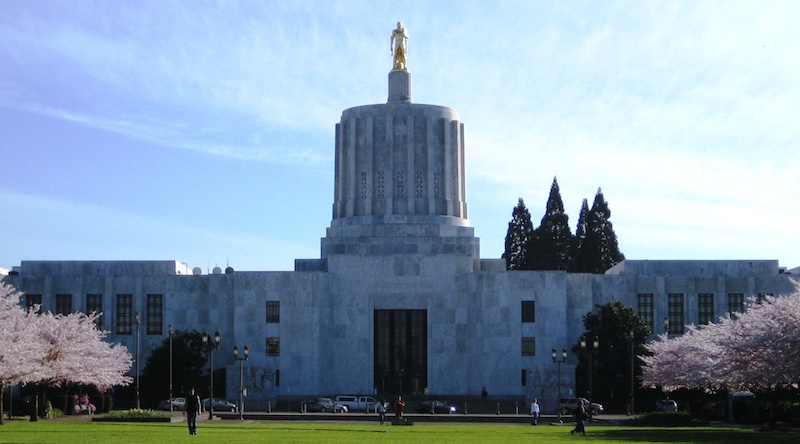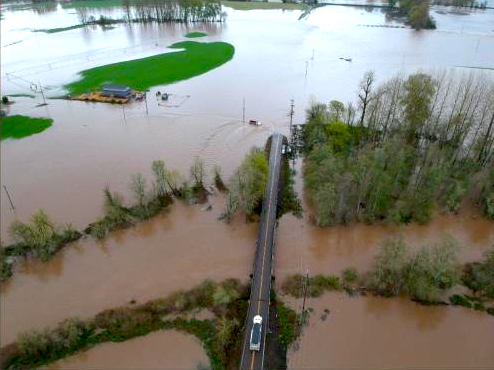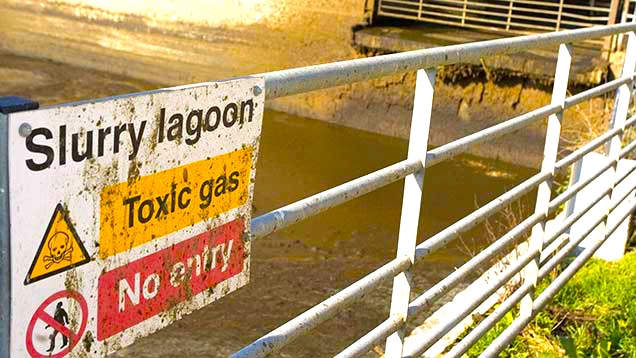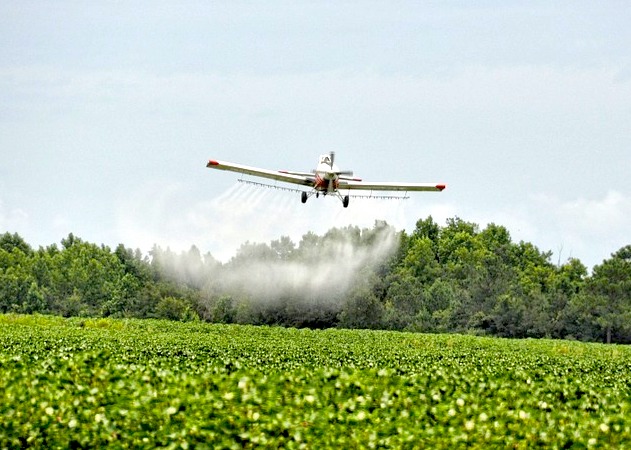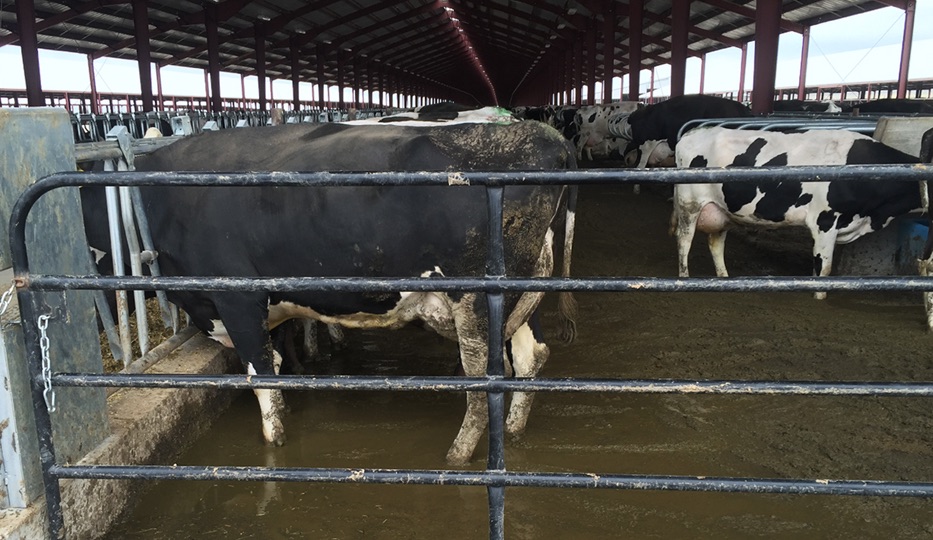
Mega-Dairy Reform Bills Die, Threatening a Repeat of Lost Valley Disaster
I have rarely, if ever, republished a press release from any organization. But I was so appalled and ashamed by the spineless, kowtowing obsequiousness of the Oregon legislature when it comes to factory farms in our state that I'm making an exception in this instance. Instead of instituting a simple moratorium on approval of new mega-dairies in our state in order to get its regulatory house in order when it comes to our air, water and groundwater quality, animal welfare, human health, the survival of small farms and the vibrancy of rural communities—read my article, Big Milk Brings Big Issues for Local Communities, for details—our legislators instead bowed to pressure from agribusiness industry lobbyists to kill the bill before it even got out of committee. This denies Oregonians the right to listen to a full airing of, and a debate on, the future of our state.
The following was released by the following coalition: Columbia Riverkeeper, Food & Water Watch, Friends of Family Farmers, WaterWatch of Oregon, Center for Food Safety, Farm Forward, Animal Legal Defense Fund, Humane Voters Oregon, Factory Farming Awareness Coalition, Humane Society of the United States.
April, 12, 2019
(SALEM, Oregon) — Oregon is at risk of repeating the ecological and economic disaster that occurred at the Lost Valley mega-dairy in Eastern Oregon after three bills aimed at fixing the problem failed to pass this legislative session. This means the loopholes that allowed the Lost Valley mega-dairy (top photo) to rack up hundreds of environmental violations, threaten groundwater, and leave behind more than 30 million gallons of liquid manure can be exploited by the new owner of the property near Boardman. In the wake of regulatory and environmental failures surrounding the Lost Valley, which was permitted for up to 30,000 cows in 2017 despite significant public opposition, a coalition of nearly two dozen farming, consumer, animal welfare, and environmental groups had called for reforms, including a 'time-out' on state-issued permits for new mega-dairies.
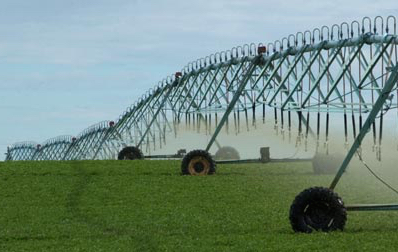
Senate Bill 103 would have put a hold on licensing new mega-dairies to allow the Oregon Department of Agriculture and other state agencies time to ensure future industrial dairies wouldn’t cause similar unchecked damage. Senate Bill 104 would have allowed local governments to enact common-sense measures to prevent groundwater and environmental contamination from sewage and dead animals at new mega-dairies. Both bills received a public hearing but have died in committee without a vote
“The Legislature had an opportunity to place a time-out on new mega-dairies in the wake of the Lost Valley disaster, but failed to take any meaningful action,” said Tarah Heinzen, senior staff attorney for Food & Water Watch and a member of the coalition. “We will continue to call for a mega-dairy moratorium on behalf of all Oregonians—who value clean water, vibrant rural communities, and ethical business practices.”
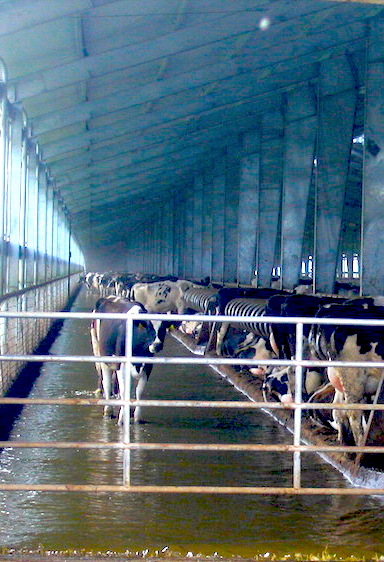
“Industrial mega-dairies are using loopholes in Oregon law to expand their operations while operating under the same rules as the small and mid-sized family farms they are driving out of business,” said Ivan Maluski, Policy Director for Friends of Family Farmers, another coalition member. “Unfortunately, even the most reasonable reforms were blocked by lobbyists representing the growing number of mega-dairy operators that are putting our family-scale dairy farms out of business.”
According to new data released this week from the USDA Census of Agriculture, the dairy industry in Oregon and across the US is consolidating into larger and larger operations. Nationwide, the number of dairy farms dropped by more than 17 percent in the last five years even as milk production and sales increased, with smaller dairy farms going out of business as the largest farms grow larger.
Another bill, SB 876, was requested by State Senator Michael Dembrow to tighten up rules to prevent unsustainable water use by new large dairies. An amendment focused on preventing pollution and overuse of threatened groundwater by new large dairies with over 2500 cows was offered in the Senate Committee on Environment and Natural Resources in the final days before a key legislative deadline, but even this modest proposal failed in a 2-3 vote with Senator Arnie Roblan (D-Coos Bay) aligning with two committee Republicans, Senators Cliff Bentz (R-Ontario) and Alan Olsen (R-Canby) to kill the reform.
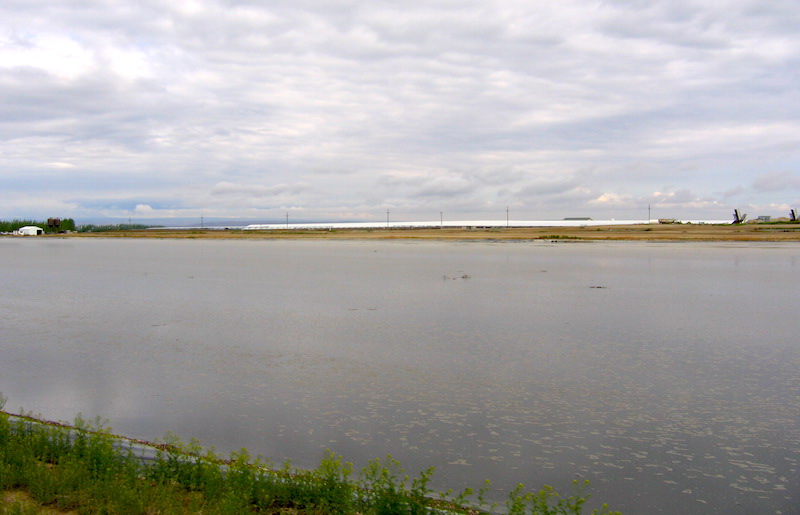
"We participated in Senator Dembrow's work group for several months, and had hoped it would have led to reasonable industry groups working together with us to prevent the worst mistakes made at Lost Valley from happening again,” said Brian Posewitz, who worked on the issue both as a staff attorney for WaterWatch of Oregon and as a board member for the animal welfare group Humane Voters Oregon. “For example, lobbyists representing industrial dairies blocked a provision in an amendment to SB 876 to prevent unlimited exempt use of groundwater by new operations over 2500 cows in areas where other agricultural water rights are restricted by rule or order due to declining and limited supplies. They also prevented creation of a task force, which would have had equal representation from the industry, simply to talk about animal welfare issues at industrial dairies.”
"I think Oregonians would be shocked to know that the majority of dairy products now come from industrial mega-dairies like Lost Valley that raise cows in extreme confinement, where animals often stand in their own feces, with little to no access to the outdoors. While it's no surprise that Big Ag worked hard to defeat these bills, we're disappointed that three legislators on the Senate Environment and Natural Resources Committee didn't listen to the majority of Oregonians who value animal welfare and sustainable food,” said Erin Eberle, Director of Engagement for Farm Forward.
"Lost Valley threatened groundwater, racked up hundreds of permit violations, treated their animals inhumanely, and left 30 million gallons of manure and wastewater behind, and yet the State Department of Agriculture didn’t prevent it from happening when they could have,” said Scott Beckstead, Rural Outreach Director with the Humane Society of the United States. “With a new owner of the Lost Valley site likely planning to re-open the 30,000 cow facility soon, we will keep working to ensure this and other industrial dairies aren’t allowed to exploit the loopholes in Oregon’s laws again.”
Read my series of posts outlining the long history of problems at Lost Valley Farm since it opened two years ago, including cows standing in manure from overflowing lagoons and a leaking tank containing dead cows, plus massive groundwater pollution, lawsuits from the state of Oregon and the farm's creditors, and former owner Greg te Velde's own arrest for soliciting a prostitute and possession of methamphetamine in Benton County, Washington.
My article Big Milk, Big Issues for Local Communities reports on the issues mega-dairies pose to Oregon's air, water, environment and communities. You can also find out Why I'm Quitting Tillamook Cheese and read other coverage about factory farms in Oregon.
